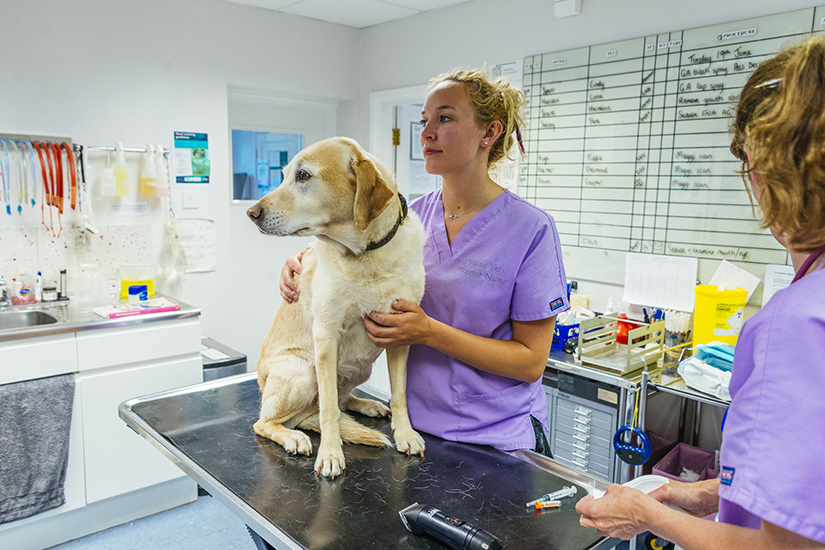-
-
- Standards Committee
- Advancement of the Professions Committee
- Audit and Risk Committee
- Education Committee
- Disciplinary Committee
- Charter Case Committee
- Preliminary Investigation Committee and Disciplinary Committee Liaison Committee
- Registration Committee
- Preliminary Investigation Committee
- Paper classification: some definitions
-
-
-
-
- About extra-mural studies (EMS)
- EMS requirements
- Information for vet students
- Information for EMS providers
- Information for vet schools
- Temporary EMS requirements
- Practice by students - regulations
- Health and safety on EMS placements
- EMS contacts and further guidance
- Extra-mural studies fit for the future
-
-
- Code of Professional Conduct for Veterinary Surgeons
- Code of Professional Conduct for Veterinary Nurses
- Contact the Advice Team
- XL Bully dog ban
- 'Under care' - guidance
- Advice on Schedule 3
- Controlled Drugs Guidance – A to Z
- Dealing with Difficult Situations webinar recordings
- FAQs – Common medicines pitfalls
- FAQs – Routine veterinary practice and clinical veterinary research
- FAQs – Advertising of practice names
- GDPR – RCVS information and Q&As
-
- Accrediting veterinary degrees
- Accrediting veterinary nursing qualifications
- Reasonable adjustments for student vets
- Health and disability in veterinary medicine study and practice
- The role of the veterinary schools and the RCVS
- Reasonable adjustments and the Equality Act 2010
- Reasonable adjustments and Day One Competences
- Examples of reasonable adjustments for vet students
- Annex
- Reasonable adjustments for student vets - summary
- Reasonable adjustments for student veterinary nurses
- Health and disability in veterinary nurse education and training
- Reasonable adjustments for students and the UK disability discrimination legislation
- Educational assessment of veterinary nurses
- Roles of key stakeholders in the application of reasonable adjustments
- Examples of reasonable adjustments for vet nurse students
- Embracing reasonable adjustments for student vet nurses - summary
- External review of the RCVS by ENQA
- Requirements for remote and online student assessments
RCVS to consult on new veterinary nursing qualifications framework
28 June 2018
Next month we are asking the veterinary professions for their view on a proposed new framework for post-registration veterinary nursing qualifications which aim to enhance the structure of the veterinary nursing career and, ultimately, introduce an Advanced Veterinary Nurse status.
 The proposed framework has grown out of the VN Futures research project, run jointly with the British Veterinary Nursing Association (BVNA), which identified developing a structured and rewarding career path for veterinary nurses as one of the key demands of the profession.
The proposed framework has grown out of the VN Futures research project, run jointly with the British Veterinary Nursing Association (BVNA), which identified developing a structured and rewarding career path for veterinary nurses as one of the key demands of the profession.
It has been developed by the VN Futures Post-Registration Development Group in conjunction with the RCVS Veterinary Nurses Education Committee and Veterinary Nurses Council.
The proposed framework serves to provide accessible, flexible and professionally relevant post-registration awards for veterinary nurses in order to provide an enhanced level of veterinary nursing practice, while also providing specific modules that veterinary nurses at all career levels can study independently for their continuing professional development (CPD).
Julie Dugmore, our Director of Veterinary Nursing, said: “One of the strongest messages that came out of the research we conducted with the British Veterinary Nursing Association (BVNA) prior to the publication of the VN Futures Report was that there was a need for a more structured and rewarding career path for veterinary nurses.
“Throughout the VN Futures roadshow events nurses felt they were often entering a career cul-de-sac after a certain amount of time in practice and so the need for further post-registration qualifications which promote excellence and recognise advanced knowledge, skills, competency and experience in designated areas were strongly expressed.
“We have taken this feedback and developed it into a comprehensive framework for two defined post-registration qualifications and are very interested in hearing what both veterinary nurses and veterinary surgeons have to say about all aspects of what we are proposing.
“Once we have collated the responses, we will incorporate the feedback into the framework for further consideration by the relevant committees and VN Council.
"The eventual aim is that these qualifications will, once sufficiently bedded in, lead to the development of an Advanced Veterinary Nurse status so that members of the VN profession with the sufficient skills and experience will get the recognition they truly deserve.”
The two new qualifications included in the framework are a Graduate Certificate in Advanced Veterinary Nursing and a Postgraduate Certificate in Advanced Veterinary Nursing. Details of the courses’ structure, candidate assessment criteria, accreditation standards, student support, candidate eligibility rules, the RCVS enrolment process and the procedures for certification will be set out in a framework document as part of the consultation process.
The document also includes a prospective list of designations for the two courses covering areas of advanced veterinary nursing knowledge such as wellness and preventative health; rehabilitation and physiotherapy; anaesthesia and analgesia; triage, critical care and emergency nursing; pharmacology; animal welfare; education and teaching; management and leadership; research; and, dentistry.
The consultation will be launched in early July with an email sent to all veterinary nurses and veterinary surgeons containing a link to the survey and asking for their views on the proposals. Details of the consultation, once launched, may also be found at www.rcvs.org.uk/consultations